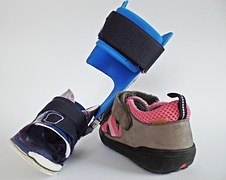New Jersey’s Civil Service Appeals
 Our employment law attorneys represent government employees in New Jersey Civil Service appeals.
Our employment law attorneys represent government employees in New Jersey Civil Service appeals.
One of the most criticized but least understood areas of New Jersey employment law is the Civil Service System. Employers complain that New Jersey’s Civil Service System makes it too difficult to fire employees who are not carrying their weight. Employees, especially prospective employees, complain that civil service makes it too difficult to obtain jobs. However, the Civil Service System is there for an extremely important reason.
New Jersey – gasp – has a history of corruption and political patronage when it comes to awarding government jobs, and while the old civil service system helped, it did not eliminate it. After the long reign of Frank (“I am the law”) Hague in Jersey City, New Jersey said enough is enough. It held a constitutional convention, and the New Jersey Constitution of 1947 provided that civil service selections and appointments had to be based on merit, determined by test if possible. This was to take politics, corruption, nepotism and favoritism out of employment decisions so that merit was the only reason employees obtained or kept their jobs.
 New Jersey Lawyers Blog
New Jersey Lawyers Blog


 In New Jersey, obtaining a teaching certificate is a difficult task, requiring a great deal of credentials. For the individuals who are issued a teaching certificate, it is a testament to the individual’s dedication, commitment, and passion for teaching. Therefore, if your certificate is at risk of being revoked or suspended, it is important to know your rights and whether to challenge such a determination.
In New Jersey, obtaining a teaching certificate is a difficult task, requiring a great deal of credentials. For the individuals who are issued a teaching certificate, it is a testament to the individual’s dedication, commitment, and passion for teaching. Therefore, if your certificate is at risk of being revoked or suspended, it is important to know your rights and whether to challenge such a determination.
 The Supreme Court of the United States has recently issued an
The Supreme Court of the United States has recently issued an  New Jersey’s employment laws governing the rights and responsibilities of New Jersey teachers are found in Title 18A of New Jersey Statutes. The laws are complex, but our
New Jersey’s employment laws governing the rights and responsibilities of New Jersey teachers are found in Title 18A of New Jersey Statutes. The laws are complex, but our  New Jersey’s Department of Education has issued regulations which govern “controversies and disputes” with public employees such teachers and principals. The “controversies and disputes” cover a wide variety of issues including but not limited to the State Board of Examiner’s (“Board’s”) decision to block, revoke, or suspend a teacher’s certificate.
New Jersey’s Department of Education has issued regulations which govern “controversies and disputes” with public employees such teachers and principals. The “controversies and disputes” cover a wide variety of issues including but not limited to the State Board of Examiner’s (“Board’s”) decision to block, revoke, or suspend a teacher’s certificate.


